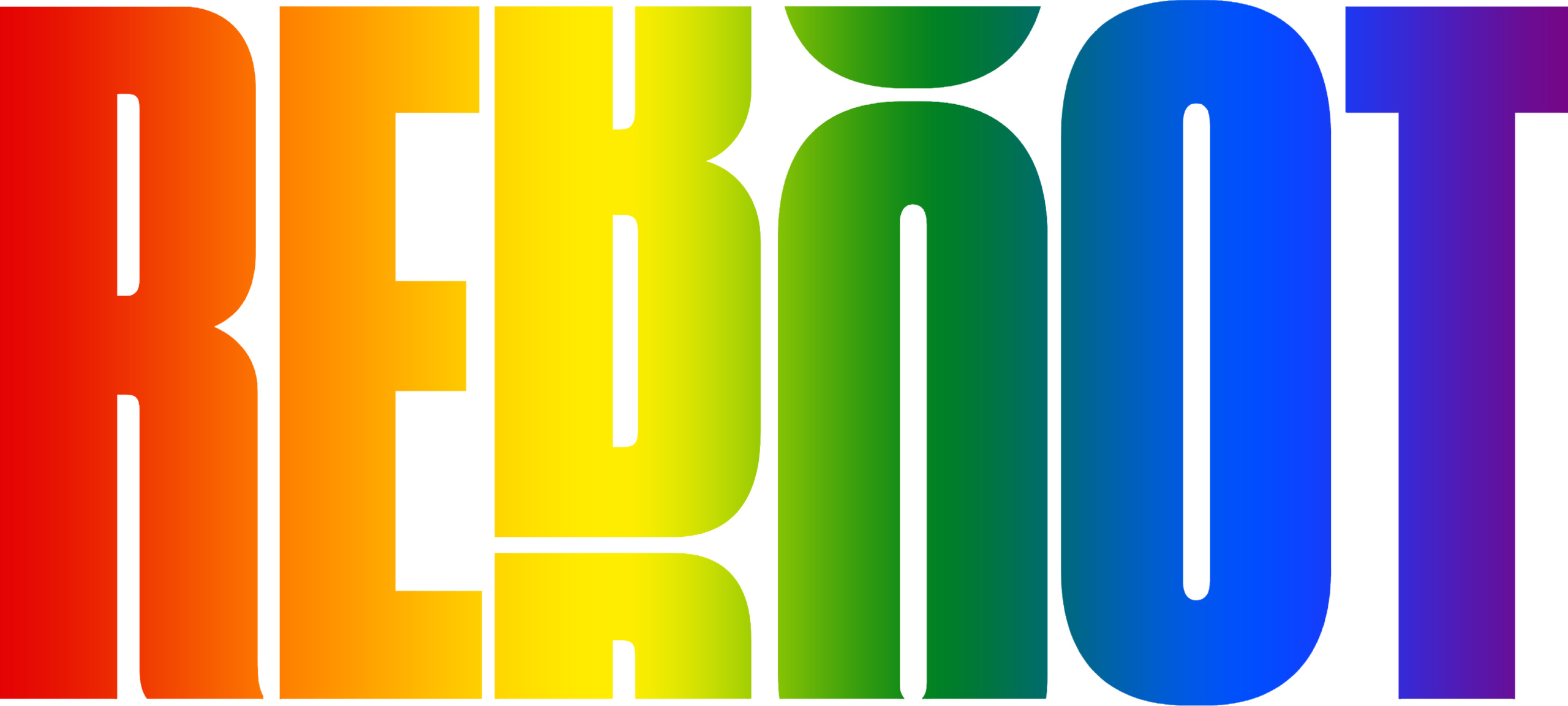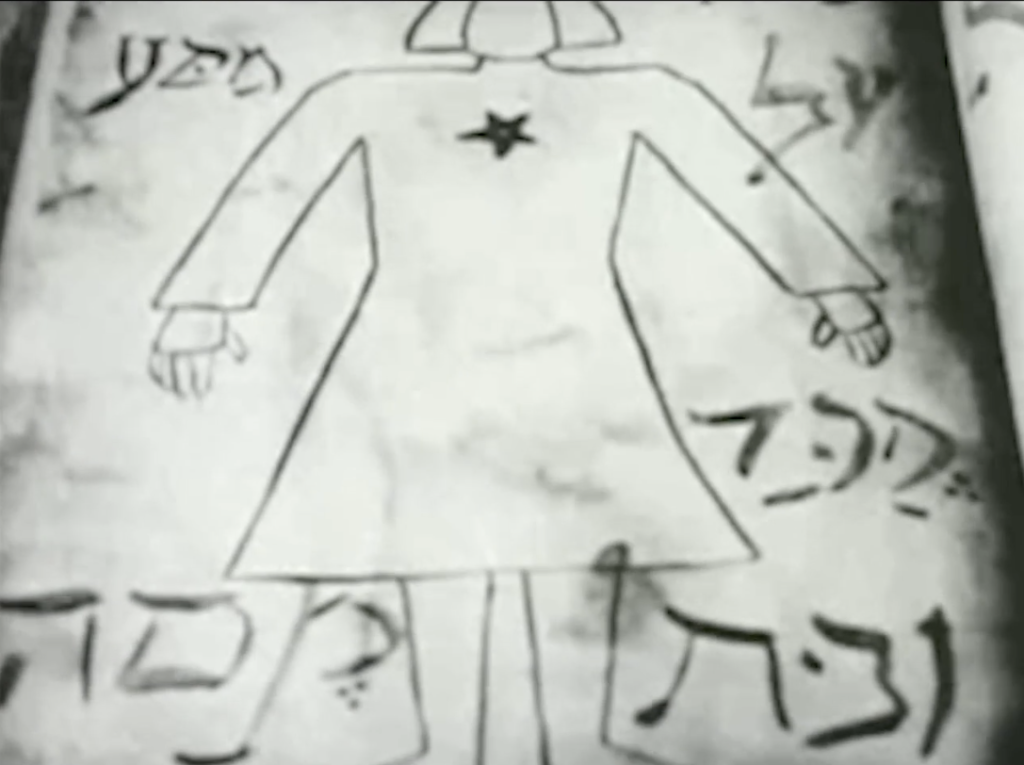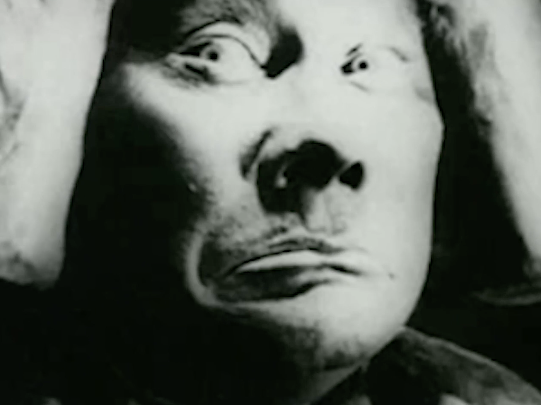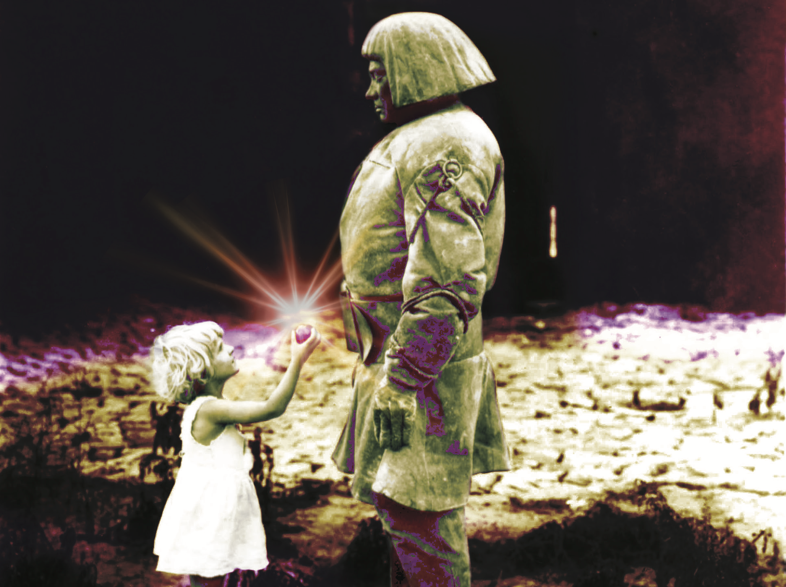Halloween Sameach
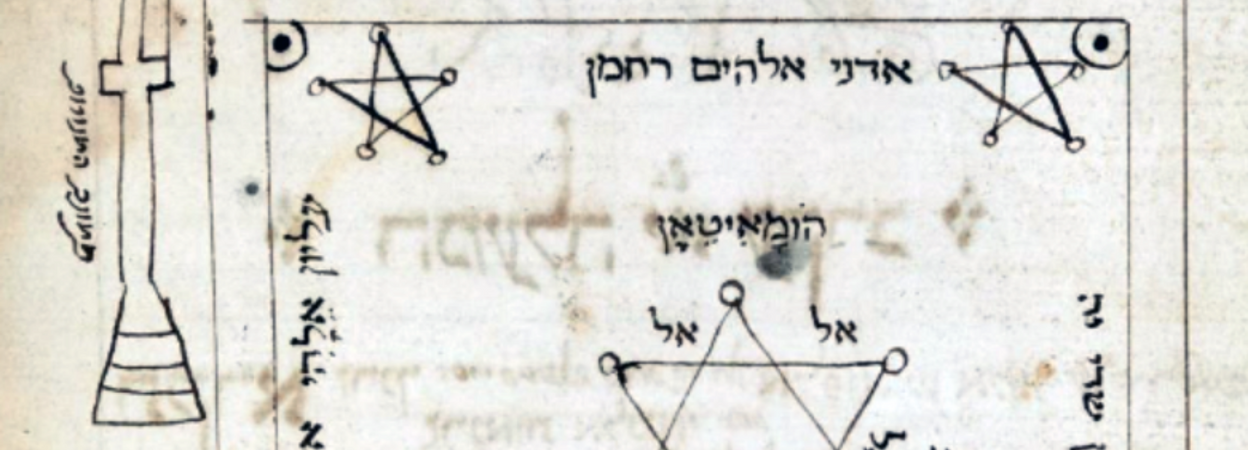
Do Jews celebrate Halloween?
Dr. Justin Sledge of Esoterica sheds some light.
Shadows lengthen, the cool air begins to bite, trees do their best Van Gogh impression and somewhere in the distance a synthy John Carpenter score is playing – Halloween cometh. A holiday as ancient as Irish paganism took America by storm in the early 20th century where it was more playful than spooky and captured the libidinal imagination with creature features and hard-core horror films as the century grew on. This holiday, both celebrating and recoiling at the notion that the barrier between the living and the dead is at its thinnest on October 31 has no real analog in Judaism. In fact, orthodox Judaism would likely consider its celebration by Jews as “avodah zarah,” tantamount to paganism. I know, sounds like fun, right?
Though, even the religious logics of northern European paganism and ancient Canaanite religion are incongruent. For those ancient European pagans, Halloween or, better, Samhain marked the end of the agricultural cycle where the world became barren and dead. The living were left to endure the harsh, dark winter to come. For the ancient Canaanites, on the other hand, this time of the year was the beginning of hope for life-giving winter rains, a tradition even signaled by a shift in the prayer liturgy on the otherwise obscure October-ish holiday of Shemini Atzeret. In fact, in bronze-age, pre-Israelite religion, the storm god Ba’al even defeated the drought-inducing god of death, Mot, to secure just those rains, himself dying and being resurrected in the process. Many of those storm god motifs from Ba’al would be happily transferred to the Israelite God as time went on.
Thus, Israelite religion and, in turn, Judaism and the ancient northern European paganism that bequeathed us Halloween stand in nearly diametric tension on even the meaning of this time of the year, let alone whether strict interpretations of Jewish law allow the delights of spooky costumes and the like.
This wouldn’t be such a problem if Judaism had a holiday or festival that scratched that Halloween itch. Yeah, we have a few moments that touch on the vibe. We can dress up during Purim. The High Holidays has a sense of doom to them if you get down with the more medieval poetry of it all. Pesach has the angel of death and a slew of plagues if you want to strike a more heavy-metal note for those. Shavuot has a nice Kabbalah bent to it and Hanukkah kinda celebrates the conquest of light and life over death and darkness if you squint hard with a poetic enough eye. But, frankly, there’s a reason why this otherwise obscure Irish holiday has gone on to such great success. It touches on a macabre desire most of us share to draw enjoyment from the liminal realm between life and death, the obscene pleasure of fear and even horror and an evening where some degree of transgression is not only allowed by expected.
In this way, Judaism can feel stilted and vanilla by comparison. But I think this is because we have forgotten, or really lost a side of Judaism that happily flirts with the darkly numinous and the occult arts, the part that reads the stars for the effects of their mazel (astral power…yes, ‘mazel’ as in ‘mazel tov!’), summons angels and demons in midnight rituals (the Ars Almandel), creates magical cloaks of power (Sefer HaMalbush), summons living beings from clay by moonlight (golems) and uses amulets (Kame’ot / Segulot) to expel the spirits of the malevolent dead (dybbuks) from the possessed or cast magics spells from the Book of Secrets (Sefer HaRazim) or the Sword of Moses (Harba de-Moshe).
Yes, every one of those ‘witchy’ topics are real, historical Jewish occult practices. So, if you don’t know about them, why not? At least in part because 19th century Jewish scholars shelved them, hoping to make Judaism appear more ‘normal’ in German society. Of course, we can’t blame them totally. This desire to make Judaism appear more rational and unsuperstitious was part of the strategy of combating the rampant anti-semitism of the day. It didn’t work. The antisemite will hate the logical Judaism of the Talmud just as much as the mystical Judaism of the Zohar. So, I think it’s long overdue that Jewish occultism, magic, astrology, amulets, golem-making and dybbuk-fighting all find their way back to as our rightful inheritance, if only as a real part of our shared history, as inspiration for the arts and, perhaps, as renovated ritual practice, for my jewitches out there.
I think one way to both embrace our spooky Jewishness and celebrate Halloween is to do one of those tasks Jews do best: to learn and study about our indigenous occult arts, magical spellbooks, how we captured demons in bowls buried beneath the lintels of our ancient homes or the tales of shedim (demons) and monsters that haunt even traditional texts like the Talmud and Midrash Literature. I’ve even put together a whole playlist on topics of Jewish Occultism and Magic if you want to learn more – I kinda have a thing for this stuff.
While I can’t tell you that Halloween is kosher or whether these works of Jewish magic and the occult would be accepted by orthodox or even mainstream Judaism, I can tell you that they are part of our history and fascinating just the same. And what’s halloween for if not the liminal, the spooky and even the transgressive. Halloween Sameach.
Justin Sledge holds a Phd in philosophy, MA in Religious Studies and specializes in the field of Western Esotericism. He is also the host of the popular (200,000+ subscribers) Youtube channel Esoterica, where he creates content on the academic study of magic, alchemy, kabbalah, and the occult generally. www.justinsledge.com
See his latest video on The Origins of the Dybbuk – How the Kabbalah Transformed Possession & Exorcism of the Evil Dead here.
